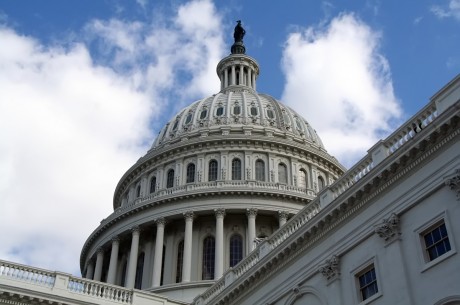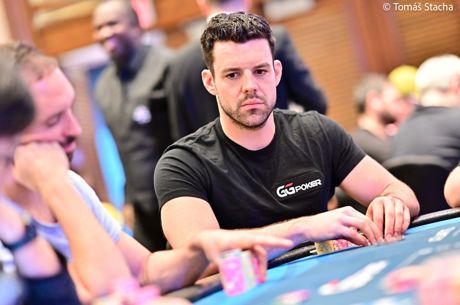PokerNews Feature: The Future of Online Poker in the U.S. -- Is Your State Next?

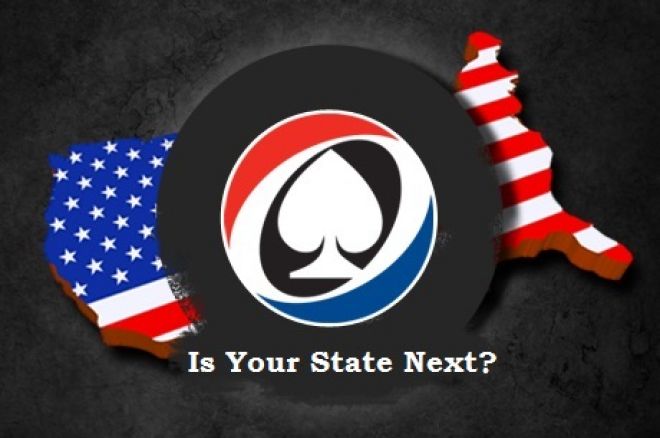
When Internet poker went live in New Jersey, Nevada and Delaware in 2013, it appeared that it was just a matter of time before other states would follow suit and legalize too, leading to the eventual acceptance — or so poker players hoped — of online poker throughout the U.S.
That has yet to happen.
Although there is some form of gambling in 48 of 50 states (excluding Utah and Hawaii), and the legalization of online poker certainly seems like a logical and, some would say, inevitable progression in an age when most businesses and governments have learned to either embrace the Internet or be left behind, the domino theory has yet to take effect.
The question is why?
True, 11 U.S. states have given it some level of consideration. Yet, three months into the year, with many of these states facing budget constrictions and looking for ways to increase tax revenue, what is already clear is that none of them will be passing legislation to license and regulate online poker in 2014.
"It's likely going to take years for other states to join us," says New Jersey Sen. Ray Lesniak, who led the charge for Internet gaming in the Garden State and has a current bill looking to allow foreign players in legal jurisdictions to play on Atlantic City sites. "That's why I'm pushing for us to get involved in the international market, where it's already well developed. I believe there is greater potential there than in the U.S. market at this time."
Has the state race stalled after one lap? In this article, PokerNews will examine the main issues standing in the way of states following the first three into online gaming with insights gleaned from speaking to representatives from four of the states looking hardest at legalization — California, Pennsylvania, Illinois and Mississippi.
A POWERFUL OPPONENT
For most of 2013, online poker was riding a wave of positive momentum. Regulation was starting to become a reality. There weren't any big enemies remaining. Former Sen. Jon Kyl, one of the architects of the Unlawful Internet Gambling Enforcement Act (UIGEA) and the biggest opponent of online gambling for the past decade, had, before he retired, actually acknowledged the distinction between Internet poker and other gaming activities. Rep. Spencer Bachus, who used to battle Barney Frank in those House Financial Services Committee hearings on Internet gambling, was, like Kyl, now out of office. The usual religious groups were still in opposition, but they weren't in a place to make much noise.

Then, along came Sheldon Adelson (pictured), the 80-year-old chairman and CEO of Las Vegas Sands, and the eighth-richest man in the world according to Forbes with an estimated wealth of $37 to $40 billion. Although he made his fortune from people gambling at his casinos, he has pledged to put all his considerable wealth into stopping gambling from taking place on the Internet.
"We need to remind people that Sheldon may be saying things because he has specific business interests at heart — not the interests of poor children like he claims," says John Pappas, executive director of the Poker Players Alliance. "He's always mentioned that not only is he opposed to this morally, but there would be a cannibalization of brick and mortar properties. I think everyone has to kind of read between the lines of what he's saying. I think it's more a business concern for him than a moral one."
Whatever Adelson's motivations, one thing is absolutely clear: Adelson has the money and influence to cause problems for online poker, and he is doing so.
"We have a pretty large voice that has emerged on the other side," Pappas says. "I'm sure that is playing some role in slowing down the process of the states."
Adelson created the Coalition to Stop Internet Gambling and is investing heavily into pushing bills in the Senate and House that would amend the Wire Act to ban all forms of Internet gambling, not just sports betting.
Estimated to have made more than $100 million in political contributions during the last election cycle, he has massive pull with a large number of elected officials. He's also using his money to try to sway public opinion by inundating the country with scare-tactic advertisements and commercials painting Internet gambling as an evil being pushed by disreputable gaming interests that want to target families, children and the elderly in their homes.
Although his focus is on the federal level, his campaign is directly and indirectly affecting the states.
"When you have someone who spent $100 million on the last election and says he will spend whatever it takes, I think it's a significant force," says Stephen Hart, a gaming law attorney who represents a number of Indian tribes. "I can't predict whether he would have the power, whether there's enough support in Congress to eliminate the state's right to go forward on Internet gaming. I would be surprised. But $37 billion is a lot of money. These are forces to be reckoned with. Forces that I think will complicate the authorization of Internet gaming or Internet poker."
States have reacted differently to Adelson's influence. In California, where the gaming interests are aligned, his threat is acting as a spur to action, and because together they wield more influence in Sacramento than he does, they are trying to pass a law legalizing online poker in the state before the federal ban has a chance to move, with the idea that it will allow them to be grandfathered in even if his federal bill does pass.
"That federal threat out there is real," says Keith Sharp, a lawyer who represents some of the biggest card rooms in California, including Commerce, Hawaiian Gardens and The Bike. "Mr. Adelson, as we all know, puts his money where his mouth is. Our lobbyists are telling us this thing can have legs. I'm genuinely worried about that, and that's why I would like to see us move sooner rather than later."
In Pennsylvania, Adelson has a direct impact as a casino holder with Sands Casino Resort Bethlehem. The momentum in the state seemed to be pointed toward legalizing online gaming, and then Adelson pushed back by getting Pennsylvania Rep. Mario Scavello to introduce a bill that would criminalize Internet wagering for the individual.
Pennsylvania State Sen. Kim Ward, chair of the Senate Community, Economic and Recreational Development Committee that ordered a study analyzing the potential impact of online gaming on the state, says of the criminalization bill: "I don't see that having a whole lot of legs."
Even if the criminalization bill doesn't have a chance, it's changing the narrative in Pennsylvania, and showing that Adelson won't give in without a fight, even at the state level.
When the study comes back around May 1, it is expected to set the course for Internet gambling in Pennsylvania. If the results recommend pursuing it, exploration will begin in that direction. However, "If the study comes back and says we can't handle it, I guess it most likely won't happen," Ward says.
From the study, Ward indicated that she hopes to find out how the dozen casinos in the state are doing, projections for revenue online gaming could bring the state and what effect it would have on jobs. Also if there are enough interested people with disposable incomes to support and sustain Internet gambling without cannibalizing the brick-and-mortar operations currently in place.
In the event these questions are sufficiently answered, Ward says that the next step will be getting all the casino interests in the state to the table.
"If it comes back positive and it looks like there will be a lot of discussion, the most important thing we have to do is get everybody on board," Ward says.
That could be difficult when the most powerful guy at the table is not just saying no, but screaming hell no.
In the many states that have some interest in online poker but want to see how the other states do with it first, Adelson's push for a federal ban gives them something else they would probably want to watch play out before they decide whether to get involved — and it could take years to play out.
The good news is that Adelson's money doesn't always get him what he wants, or else we'd be saluting President Newt Gingrich.
A MODEST START
The amount of tax revenue generated thus far by the newly-minted online poker sites haven't helped matters. If the online poker markets that opened in New Jersey, Nevada and Delaware were huge honey pots filling the state coffers, other states would certainly be more anxious to get involved.
Nevada and Delaware both illustrate the problem that states with a small population have in providing enough liquidity for Internet poker. Nevada's three online poker rooms generated only $8.5 million in the first 10 months of the state's regulated market. Delaware has yet to hit six figures a month in revenues from online poker.
New Jersey is off to a decent start since its Atlantic City-based sites went live in November, already reaching $10 million in monthly online gaming revenues, with more than $3 million from poker, but those totals pale in comparison to the high expectations Gov. Chris Christie set when he predicted the state's Internet gambling would generate $1 billion in its first year.
Morgan Stanley recently lowered its estimate of the total U.S. Internet gambling market to reach $3.5 billion by 2017, down from its earlier forecast of $5 billion. The financial services firm also lowered New Jersey's first-year projections from $541 million to $203 million.
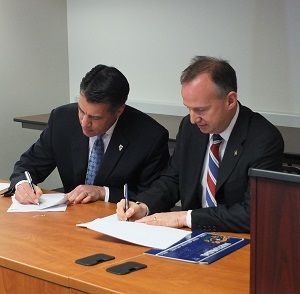
"We need to be realistic when talking to lawmakers about what can be expected from iPoker revenue, particularly when looking at a state-by-state deal where individual states are operating," Pappas says. "Until they can have interstate liquidity, I think they will always have lower-than-expected revenues."
In February, Nevada and Delaware reached the first agreement to share player pools. Lesniak stated from the beginning his intent for New Jersey to be the center of an interstate gaming network, though with about 9 million people it has just enough population to make it on its own — and it's the 11th largest state in the union.
Well over half of all the states would have difficulty sustaining online poker on their own, meaning they'll be watching how the Nevada-Delaware experiment goes. Mississippi Rep. Bobby Moak wants to see his state enter into an interstate deal in the future, and it would make a natural partner for New Jersey since Caesars, MGM, Boyd Gaming and Golden Nugget have a presence in both states.
In theory, combining player pools with partnerships between states will increase revenues because people are likely to play more if the games are better and there are more people to play with at different times of the day.
On the positive side, legal and regulated online poker hands are currently being played in three states and none of Adelson's apocalyptic prophecies have occurred. There hasn't been an increase in terrorism and organized crime, babies aren't gambling from their cribs and we haven't skewed off into the alternate timeline from Back to the Future Part II, where Biff runs the town and his casino has transformed the place into a corrupt hell on Earth.
There haven't been any reported cases of underage players slipping through. Most of the issues have come from overcooked safety measures, with geolocation technology blocking players near state borders and credit card companies continuing to block Internet gambling transactions in accordance with the UIGEA even when the wagers are being made in jurisdictions where it is now officially legal.
"A lot of our questions about keeping out people who shouldn't be gaming, minors who shouldn't be gaming, are being answered," Moak says. "The regulatory controls are there, and New Jersey and Nevada are clearing some of those things up. We'll learn from that and then move forward."
Internet poker doesn't need to bring in huge amounts of money to be a success. It's happening at little-to-no cost to the state, creating revenue that otherwise would not be captured. There is potential for online gaming to bring economic and job stimulus to states, and it establishes consumer protections for citizens.
However, with revenue figures that aren't impressing, other states are more likely to take a wait-and-see approach than to feel any urgency to follow the first three.
"I think a lot of people right now are taking a step back and looking at what is happening in New Jersey, thinking maybe they can learn something from that before they jump in with both feet," Pappas said.
CHANGE TAKES TIME
In general, government isn't known for acting quickly. This is particularly true when it comes to controversial issues that involve powerful vested interests and numerous moving parts. In New Jersey, it took three years from when Lesniak first introduced his bill to the day it was actually signed into law.
There are four stages to passing an online poker bill:
- Determining if it will benefit the state and its inhabitants
- Getting all the major interests on board
- Working out the details to the satisfaction of all those major interests, and
- Negotiating political support.
California, New York, Pennsylvania, Illinois, Mississippi, Florida, Massachusetts, Texas, Hawaii, Louisiana and Iowa have all given some level of consideration to regulating online poker this year, but only California has passed even the initial stage. The others aren't anywhere near following New Jersey, Nevada and Delaware into the market.
The first bill to legalize online poker in California was introduced in 2009. It took three or four years just for the key Indian tribes that rule the brick-and-mortar casino industry in the state to come to a consensus that this was something they wanted. Now all they have to do is work out the framework for how online poker will be handled in the state, and by some accounts they are 99 percent in agreement. But that last 1 percent could drag into next year.
It's understandable for companies with hundreds of millions of dollars at stake in their brick-and-mortar casinos to be deliberate in finalizing the details of something that will alter the future of their business.
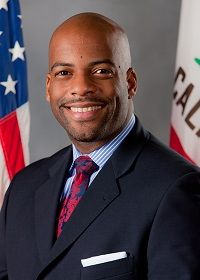
"You can't just throw this thing together happenstance and think it's going to work," says California Assemblyman Isadore Hall (pictured), who chairs the Assembly Governmental Organization Committee that includes gambling-related concerns. "This is the single issue that is going to revitalize and change the scope of gaming in California, not just California but throughout the nation. This thing takes some serious discussion and methodical perspectives in order to move forward, and I think that's what is happening."
Illinois has a gaming industry based around riverboat casinos, but Senate President John Cullerton wants to add slot machines to race tracks and put a casino in Chicago. He once had online gambling attached to his expansion bill but decided to remove it and take things one step at a time.
"I think the regular expansion needs to pass first," Cullerton says. "It's tough to pass a bill expanding casinos, and then add what to some people is controversial in online gaming. It might add some new opponents. We can't afford that."
Illinois Gov. Pat Quinn vetoed the gambling expansion bill last year. Cullerton said he hopes the legislature will put revised legislation back on the governor's desk in May. According to Cullerton, the state will only look at online gaming if the bigger expansion bill passes.
At that point, Illinois would begin the long road of getting its casino entities on board (which would no-doubt be led by two Caesars-owned properties), and selling the idea to lawmakers. Illinois held an exploratory hearing on online gaming in February, with Pappas serving as a witness, and Cullerton admitted it was a learning process for a lot of legislators. Many of them did not know that online poker pits players against players, not players against the house.
"I say it's still inevitable because this is where things are trending," says Cullerton, who indicated online gaming will not move in Illinois before 2015. "It's just going to take a while."
In Mississippi, three years have passed and the online gambling bill that Rep. Moak keeps introducing has made zero progress.
"Here we are in the third year when we should have moved forward, and we haven't," says Moak. "I think it's a disservice to our industry here in Mississippi. With the downturn in the economy and other states getting into the business of gaming, we have to offer our industry here in Mississippi all the avenues they have to stay viable. If we don't have this, we're taking one of the tools away from them."
Like New Jersey, Mississippi has a long history of gambling around the waterfront, in this case along the Mississippi River and the Gulf Coast. Legal casinos have been operating there since 1990, but also like New Jersey they have seen revenues plummet of late, from $2.8 billion in 2007 to $2.25 billion last year.
What worries Moak is that while Internet gaming grows, casinos in states where iGaming is not offered will suffer. Unfortunately, his bill hasn't had any chance in Mississippi's political climate.
Soon after he first introduced the bill, the Republicans took over the state legislature and have had no interest in pushing the bill forward. It hasn't even gotten a hearing. He thinks the House will have to switch back to the Democrats before his bill can pass, which may happen during the 2015 elections.
But that brings up another political issue that gets in the way of progress. Elections take place every two years in most states, and election season is a difficult period in which to pass controversial legislation. It's especially tough in the South, home to many of the religious zealots who object to gambling on moral grounds. Adelson's Coalition to Stop Internet Gambling is supported mostly by faith-based organizations.
"Very few people want to step out in an election year," Moak said. "I'm still going to introduce the legislation next session, but the chances aren't good. As a Democratic leader in Mississippi, I can only hope that we come back to having the gavel and can move something in 2016."
HOPE OUT WEST
It's an election year for California in 2014, but Assemblyman Hall doesn't see why that would stop the state from passing online poker legislation if the tribes can agree on the parameters of a bill.
"The legislature is willing to do it, the governor is committed to signing it and California is ready for it," Hall said. "No one is holding it back. We're advocates for California. We're advocates for economic development, for jobs and for growing our economy, and this is one of the biggest ways we can do that. So, absolutely, if [the tribes] agree on talking points, we'll agree on getting this thing out and getting it to the governor."
California could have the sort of major impact in sparking other states into action that people hoped New Jersey would have. The Golden State is by far the nation's most populous and has the reputation as a trendsetter. When something happens in California, everyone takes notice.
"If a state like California gets into Internet gaming, it's a huge catalyst that [will help] a lot of other states get into the game," confirms Moak.
This is the biggest reason why a 2014 lull doesn't mean the state race has sputtered out. California is waiting at the starting line. The political will is there, the public opinion favorable, the major casinos and card clubs on board, the gaming commission prepared, and Adelson's influence limited. As soon as the tribes wave the green flag, they'll be off. All indications are that will happen by early 2015.
Other states with tribal-based gambling industries will be watching closely. If the tribes in California come together, it will help set a national precedent for other tribes wondering if online poker is right for them.
"Number one, it shows that it can be done, and they're doing it for a reason," says Chris Stearns, commissioner of the Washington State Gambling Commission. "I think that could have a big influence on Washington and its tribes, just based on seeing their willingness."
For those disappointed by online poker's performance thus far in New Jersey, Nevada and Delaware, California could open some eyes. Before Black Friday, estimates were that 4 percent of online poker revenue in the world came from California. It is home to more brick-and-mortar poker tables than any other state.
Other parts of the country will have a hard time ignoring Internet poker once they see the marketplace's true potential on display.
"There's not a damn state in this nation that rises above California," Hall says. "We are the leaders in all of these things, and we'll continue to be the leader. The reason why it's taken us so long is because we want to continue to be the leader and do it right."
Get all the latest PokerNews updates on your social media outlets. Follow us on Twitter and find us on both Facebook and Google+!



